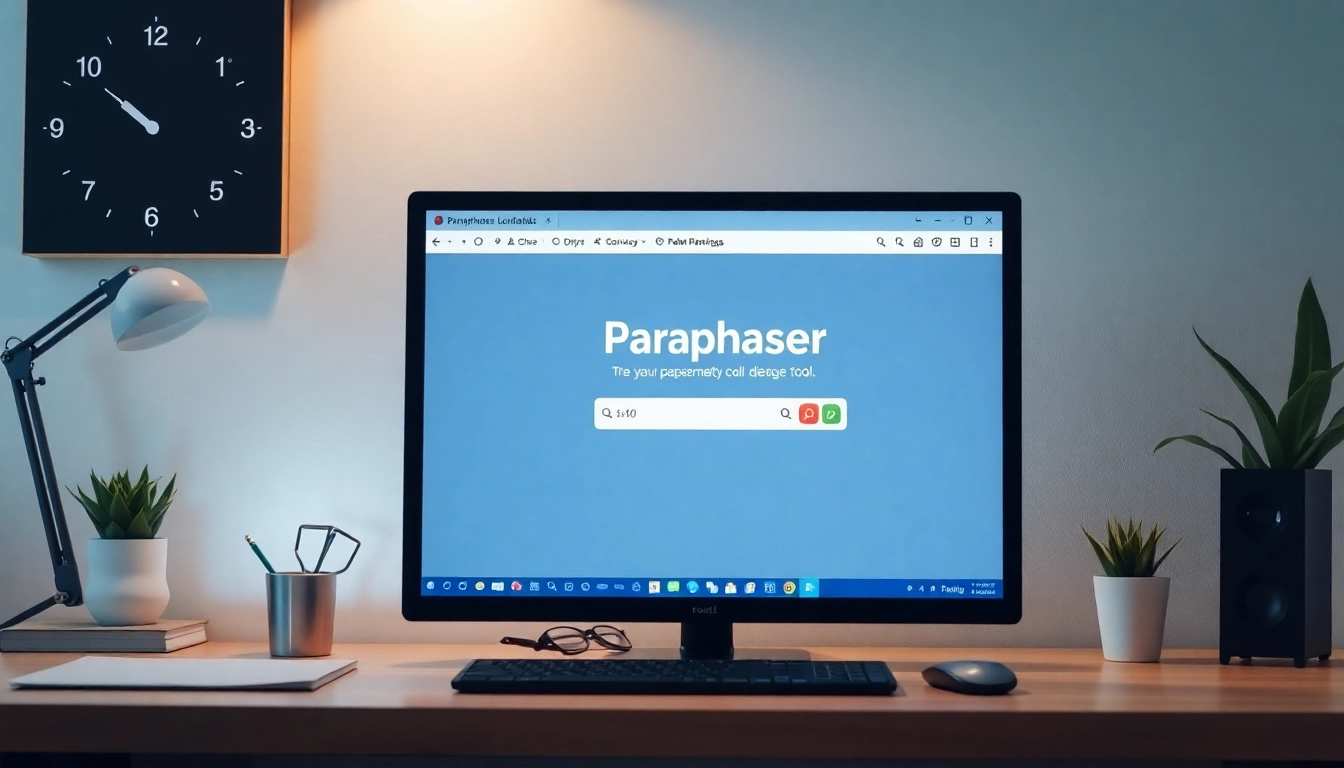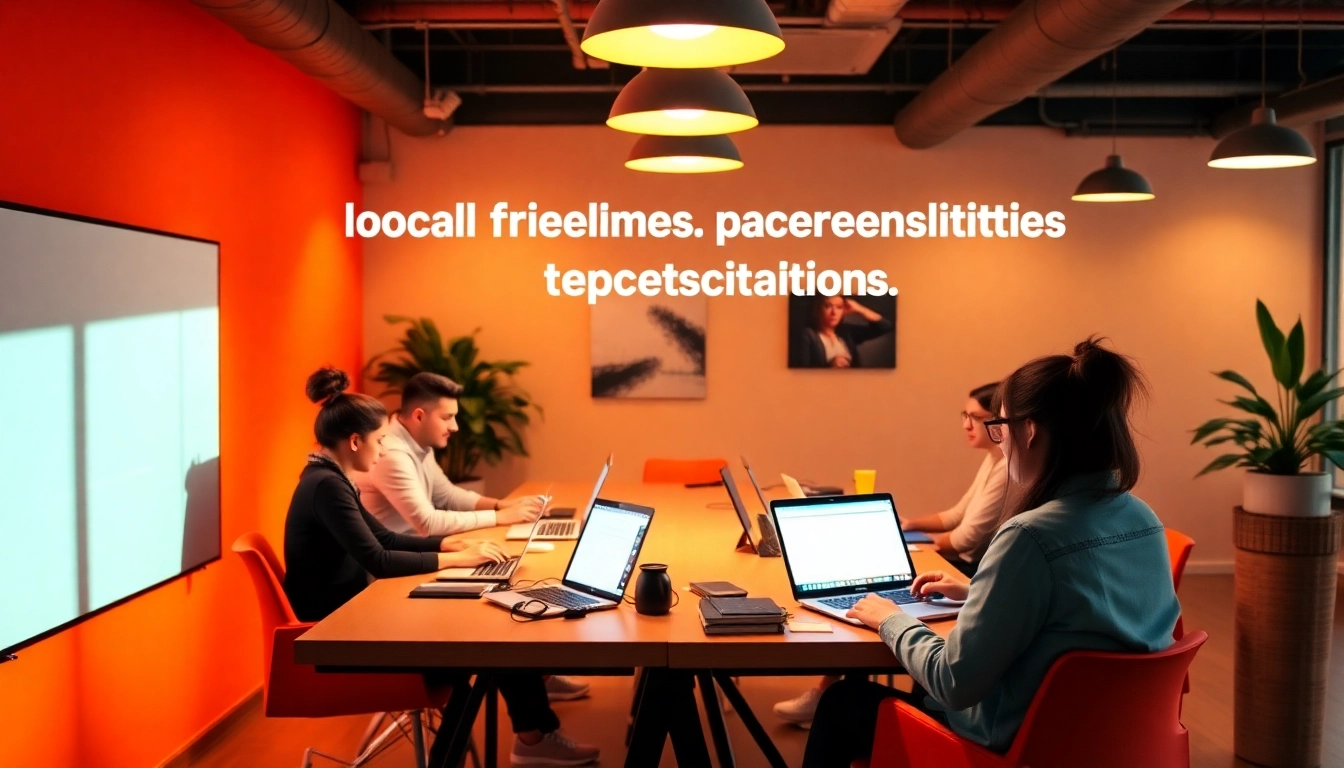Understanding the Local Freelance Market in France
Overview of freelance trends in major French cities
The freelance landscape in France has experienced rapid growth over recent years, driven by digital transformation, flexible work preferences, and the rise of remote collaboration. Major cities such as Paris, Lyon, Marseille, Toulouse, Bordeaux, Lille, Nantes, and Nice serve as vibrant hubs for freelancers across various disciplines. For example, Paris, known as the economic and cultural epicenter, hosts a dynamic mix of tech startups, creative agencies, and multinational corporations that frequently seek freelance expertise in web development, design, and digital marketing. Similarly, cities like Lyon and Marseille are emerging as regional centers for innovation, boasting thriving communities of software developers, data scientists, and UX designers.
The trend toward remote work has amplified opportunities for local freelancers, enabling them to connect with clients and projects beyond geographical constraints. As reported in industry insights, roughly 40% of freelance jobs in these cities are now remote, offering greater flexibility and access to a wider range of high-paying projects. Moreover, regional governments and tech clusters have developed initiatives and platforms that facilitate local freelancers’ access to opportunities, fostering a competitive yet collaborative environment.
For a comprehensive view of current opportunities, it’s beneficial to explore localized platforms and job boards, such as local freelance opportunities, that curate and promote region-specific roles suited to freelancers’ skills and regional needs.
Key industries and niches for local freelancers
The French freelance market is diverse, with particular strength in certain sectors that continue to generate lucrative projects. Technology remains dominant, with demand for frontend, backend, full-stack developers, and specialists in emerging frameworks like React, Angular, Vue.js, and Svelte. Digital design, UX/UI, and multimedia content creation also thrive, fueled by the growth of e-commerce, fintech, and healthtech startups.
Other prominent niches include data science and AI, where data analysts, machine learning engineers, and AI specialists are sought after for regional projects—especially within innovation hubs like Creative Valley and the French Riviera Tech. Additionally, consulting services in marketing, branding, and business strategy are consistently in demand, driven by regional companies aiming to digitalize and expand their market reach.
For instance, freelance opportunities focusing on DevOps, Cloud architecture, and cybersecurity are particularly popular in tech-centric cities, as enterprises seek to fortify their digital infrastructure. Equally, industries such as tourism, hospitality, and real estate often look for freelance content creators, photographers, and virtual tour specialists to boost their online presence.
How the remote work boom influences local opportunities
The surge in remote work has profoundly reshaped the French freelance landscape. While many freelancers retain a strong local identity, their potential client base now extends nationwide and even internationally. This shift has increased competition but simultaneously expanded opportunities for regional freelancers to secure higher-value projects that were previously inaccessible due to geographical limitations.
For example, a web developer based in Nantes can now compete for projects from Paris-based startups or companies in the tech corridors of Lyon and Marseille, often at premium rates—sometimes ranging from €600 to €1200 per day depending on expertise. Additionally, the flexibility of remote work allows freelancers to tailor their schedules, work with multiple clients, and participate in long-term projects that bolster income stability.
Platforms like JobForFreelancers play a pivotal role in connecting local talent with such opportunities, emphasizing regional expertise and fostering sustainable freelance ecosystems that combine local presence with remote capabilities.
Top Strategies to Find Local Freelance Opportunities
Utilizing local job boards and platforms effectively
One of the most effective ways to uncover local freelance gigs is through targeted use of regional job boards and specialized platforms. Websites like JobForFreelancers curate a wide array of projects tailored to freelancers’ skills across France’s major cities and tech hubs. These platforms do more than list jobs—they enable freelancers to filter opportunities by city, technology, duration, and hourly or daily rates, enabling strategic bidding for the most suitable roles.
Additionally, niche platforms and local chambers of commerce often promote freelance projects in specific industries. Engagement on these platforms, coupled with proactive application and profile optimization, significantly boost chances of landing high-paying local gigs.
Networking and community engagement tips
Networking remains a cornerstone of local freelance success. Attending industry meetups, tech conferences, and local coworking spaces fosters meaningful relationships with potential clients and peers. For example, cities like Bordeaux and Lille host regular tech and design meetups, providing fertile ground for referrals and collaborations.
Virtual community participation—through LinkedIn groups, Facebook communities, or regional Slack channels—also unlocks hidden opportunities. Contributing to discussions, sharing case studies, and showcasing your expertise can position you as a go-to professional within your region.
Building a strong local profile and portfolio
Your online presence must convey regional relevance and local industry understanding. Highlight projects with local clients, include testimonials from regional companies, and tailor your portfolio to demonstrate local relevance. For instance, case studies involving French startups or regional brands resonate more with local clients.
Optimize your profile with keywords indicating regional expertise, such as “Lyon-based web developer” or “Marseille UX designer,” to improve search visibility within local job searches. This targeted approach ensures your profile attracts the right regional clients seeking freelancers with local knowledge.
Barriers and Challenges in Securing Local Freelance Gigs
Overcoming competition in local markets
The growing popularity of freelancing in France has intensified competition, particularly in hotspots like Paris and Lyon. To stand out, freelancers must specialize deeply in niche areas, such as advanced React or Cloud Security, and develop unique value propositions tailored to local industry needs.
Investing in continuous learning and certification can differentiate you from less specialized competitors. For example, becoming a certified AWS Architect or a certified UX professional increases credibility and attractiveness to local clients.
Pricing strategies for local opportunities
Pricing remains a contentious issue. Freelancers should research market rates—TJM (daily rates) in the range of €600-€1200 depending on expertise—and align their fees with project complexity, deliverables, and local economic conditions. Transparent communication about rates and scope during negotiations builds trust and ensures fair compensation.
Offering tiered packages or retainers can attract long-term local clients, providing steady income while maintaining competitive rates.
Navigating legal and administrative requirements
French freelancing involves administrative hurdles such as registering for auto-entrepreneur status, managing tax obligations, and understanding social security contributions. Familiarity with these processes prevents legal issues and supports sustainable freelance careers. Consulting local chambers of commerce or legal advisors ensures compliance and smooth operation.
Optimizing Your Profile for Local Freelance Success
Highlighting regional expertise and connections
Your profile should explicitly showcase your local knowledge—highlight projects with regional companies, speak about regional market trends, and mention language proficiency. Demonstrating familiarity with local business practices boosts client confidence.
Including regional certifications or memberships in local professional groups can further solidify your local credentials.
Adapting your pitch to local clients’ needs
Customizing proposals by referencing local industry challenges or recent regional projects shows attentiveness and relevance. For example, when pitching to a Marseille-based tourism company, emphasize your experience with regional promotion strategies or local travel content.
This approach enhances your chances of securing projects and builds trust with clients who value a freelancer’s local insight.
Showcasing testimonials and local case studies
Testimonials from nearby clients and case studies involving local projects improve credibility. These social proofs directly address regional client concerns, making your profile more attractive to prospects in the same geographical area.
Future Trends and Opportunities in Local Freelance Work
Emerging sectors and skill demands
As France continues its digital transformation, sectors like renewable energy, smart cities, and healthcare technology are becoming prominent. Freelancers with skills in IoT, data analysis, and sustainable tech are poised to capitalize on these trends regionally.
Furthermore, skills in multilingual content creation and localization will gain importance, especially in tourist-heavy regions like the French Riviera and city-specific hubs such as Toulouse for aerospace industries.
Technology integrations for local gig enhancement
Adopting new tools like AI-driven project management platforms, regional job aggregators, or blockchain for contracts can streamline workflows. Advanced CRM and analytics tools tailored for local businesses will also help freelancers deliver customized, data-driven solutions.
Long-term sustainability in regional freelance markets
Building strong local networks, continuously updating skills, and diversifying service offerings are essential to sustain long-term success. Initiatives such as regional coworking communities and collaborative projects can foster stability and growth.
Monitoring regional economic indicators alongside industry trends ensures freelancers remain proactive and ready to adapt to evolving local demands.













